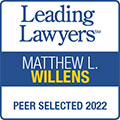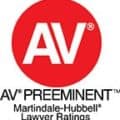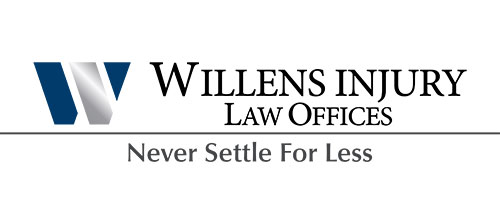Do I Have a Chicago Personal Injury Case? 3 Things Chicago Injury Lawyers Consider
There are three main things that Willens & Baez attorneys consider when assessing a potential personal injury case: liability, damages and insurance coverage.
Liability in a Chicago Personal Injury Case
Figuring out who is liable and for what is a very important first step in assessing a potential case. Since Willens & Baez is a contingency fee law firm, it is important that we only select cases that we believe we can win so that we can be paid for our work on your case. If the other party is clearly at fault, there is a good likelihood that we will accept your case. We typically ask the following questions to determine the liability in the case:
- What happened? This is a good starter question since it brings out the facts surrounding the case and illustrates for the attorney how the injury was caused.
- Who was at fault? It’s always nice to have a slam-dunk personal injury case where the other party is 100% at fault. However, cases that are so clean-cut are few and far between. What happens more frequently is that both parties are partially at fault and an assessment needs to be made as to how at fault the prospective client is relative to how at fault the other party is.
- What is the available evidence? Evidence is the cornerstone of many personal injury cases. Evidence can exist in many forms. A good example of physical evidence for use in a medical negligence case would be an x-ray showing a surgical device that was left inside of a patient’s body after an operation. Digital data can also be used as evidence, i.e., the time stamps for a smartphone text message conversation that immediately preceded an Chicago car accident can show that the driver was texting while driving.
Are There Substantial Damages?
Damages are the award and compensation for a harm or injury. There are many types of damages that can be sought. An assessment of damages can give the attorney a good idea of what your personal injury case is likely to be worth. A case with the potential for a large award can help mitigate the financial risk that the attorney may face by accepting your case. Several questions are asked to make a determination as to damages:
- What is the nature of the injuries? How extensive are the injuries? The nature and the extent of any injuries sustained by the prospective client can impact how much the case can be valued at.
- Are there any past medical bills? Are there any future medical expenses to be sought? Damages for past and future medical bills can be sought in personal injury cases. Therefore, attorneys will often ask if the prospective client has been examined by a medical professional to assess whether there will be any long-term consequences of the injury that may require medical treatment in the future.
- How much work has the prospective client missed due to the injuries? A prospective client who has missed a lot of work due to his or her injuries will likely be entitled to damages for lost wages.
- How are the injuries affecting the prospective client’s day-to-day living activities? Damages can be significantly higher if the injuries severely impair your ability to earn a living or impact your ability to do normal day-to-day activities.
What is the Scope of Insurance Coverage?
There are many aspects about the scope of insurance coverage that are of interest as we evaluate a prospective case. It is important to identify the sources of recovery before accepting a case, because a case without any means to obtain recovery for damages is no case at all. We ask the following questions to get a better understanding of where damages might be recovered:
- Does the other party have insurance coverage? The most desirable personal injury scenario is one where the other party has adequate insurance coverage to compensate the injured party. However, there are many instances where the other party does not have insurance. Some of the damages can be sought for uninsured individuals personally, but usually not all.
- Does the other party have sufficient insurance coverage to pay for the alleged damages? Similarly, there are instances in which the other party has insurance, but the coverage is inadequate to cover all of the damages sought by the prospective client. When the other party is either uninsured or inadequately insured, there is a possible third option, which is to seek damages from the prospective client’s own insurance company.
- Does the prospective client have insurance? Sometimes a prospective client’s only means of recovery is to seek damages from his or her own insurance company.











